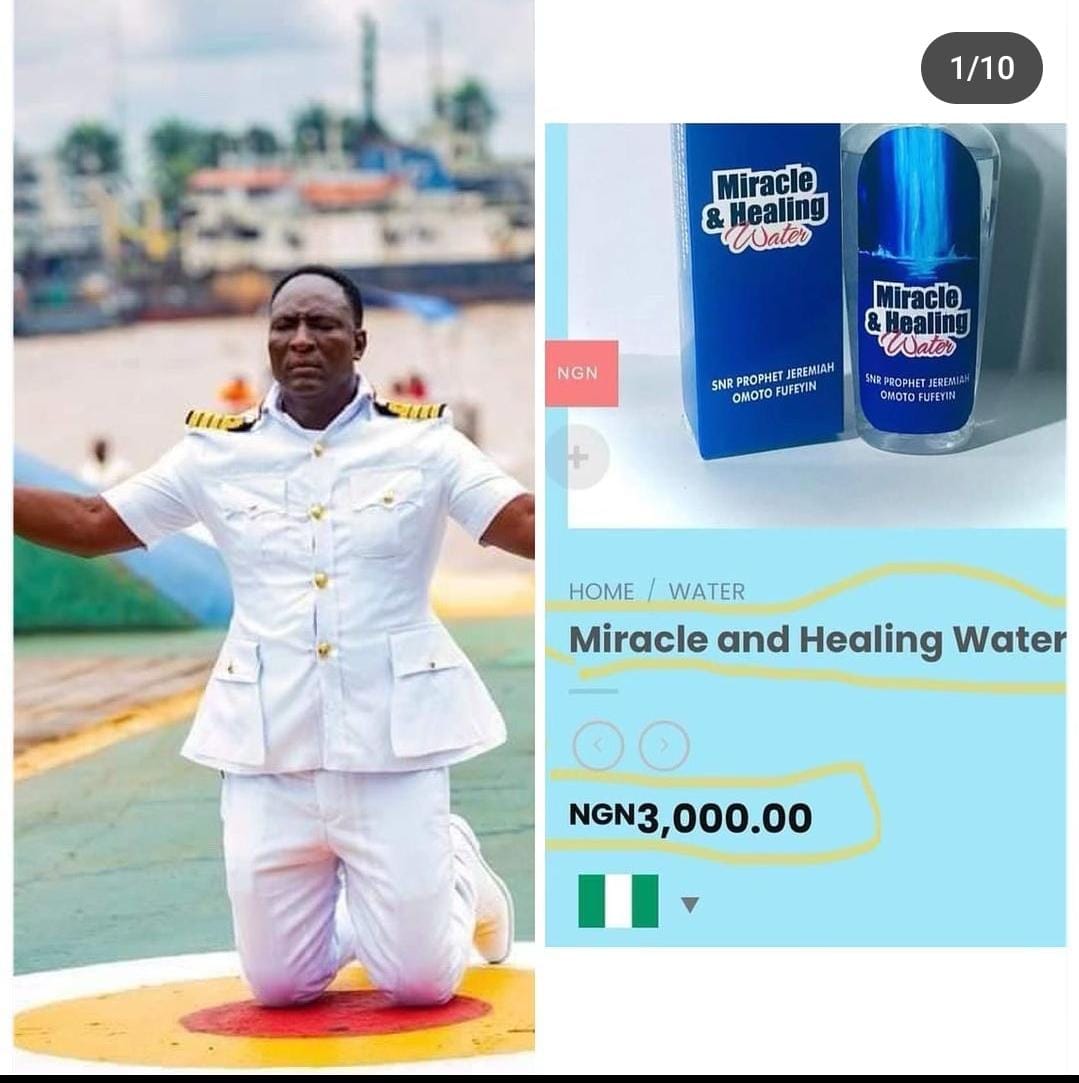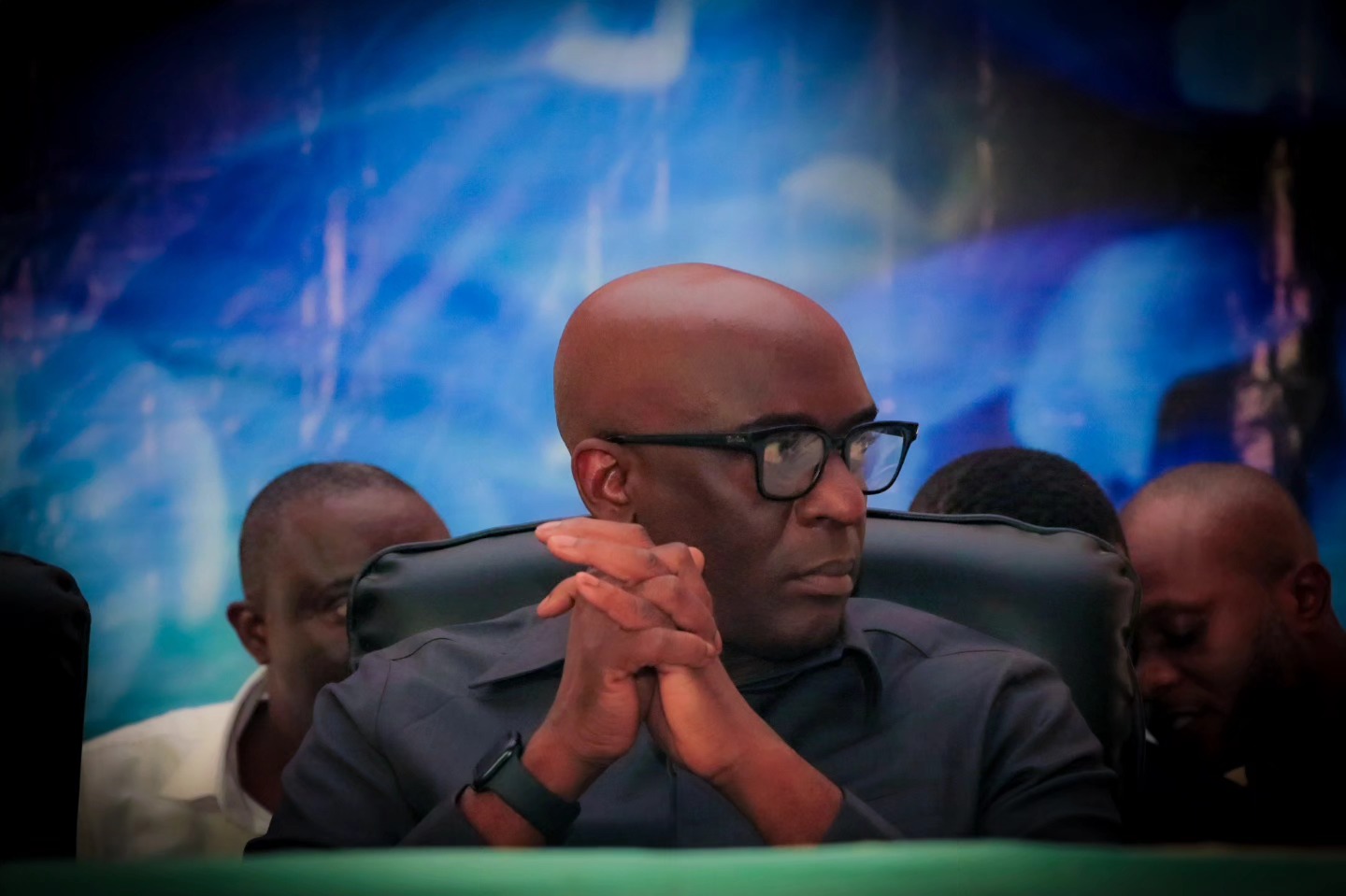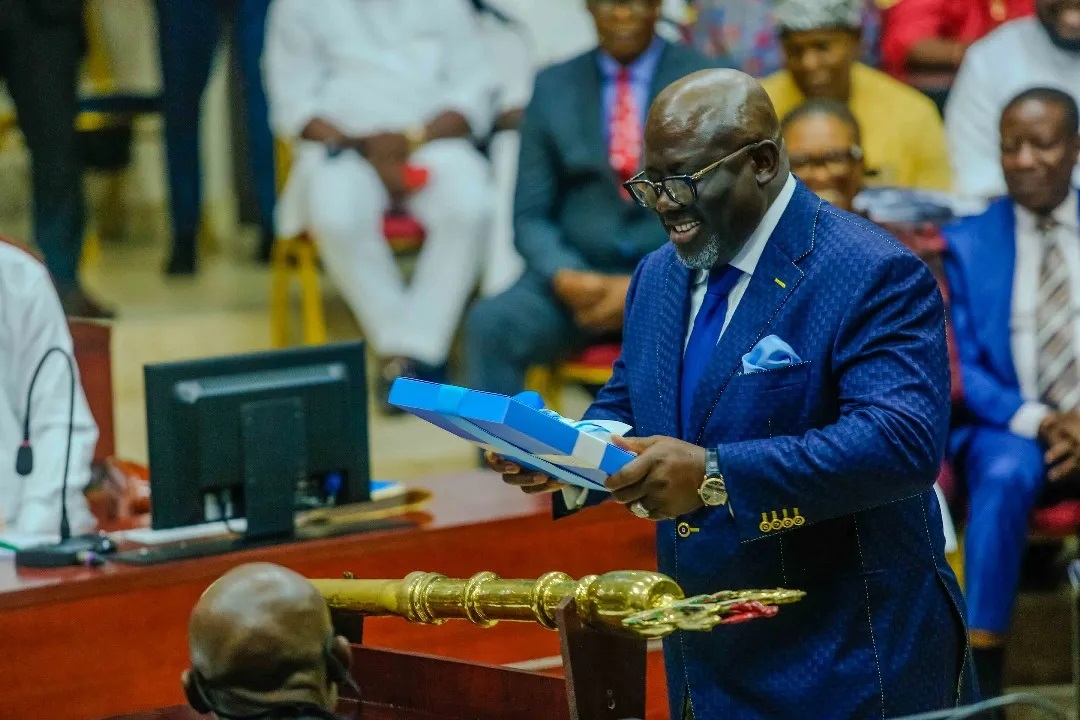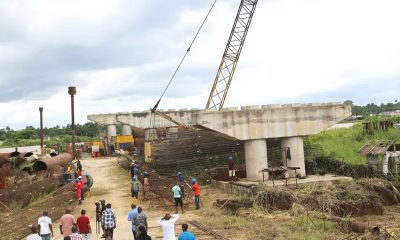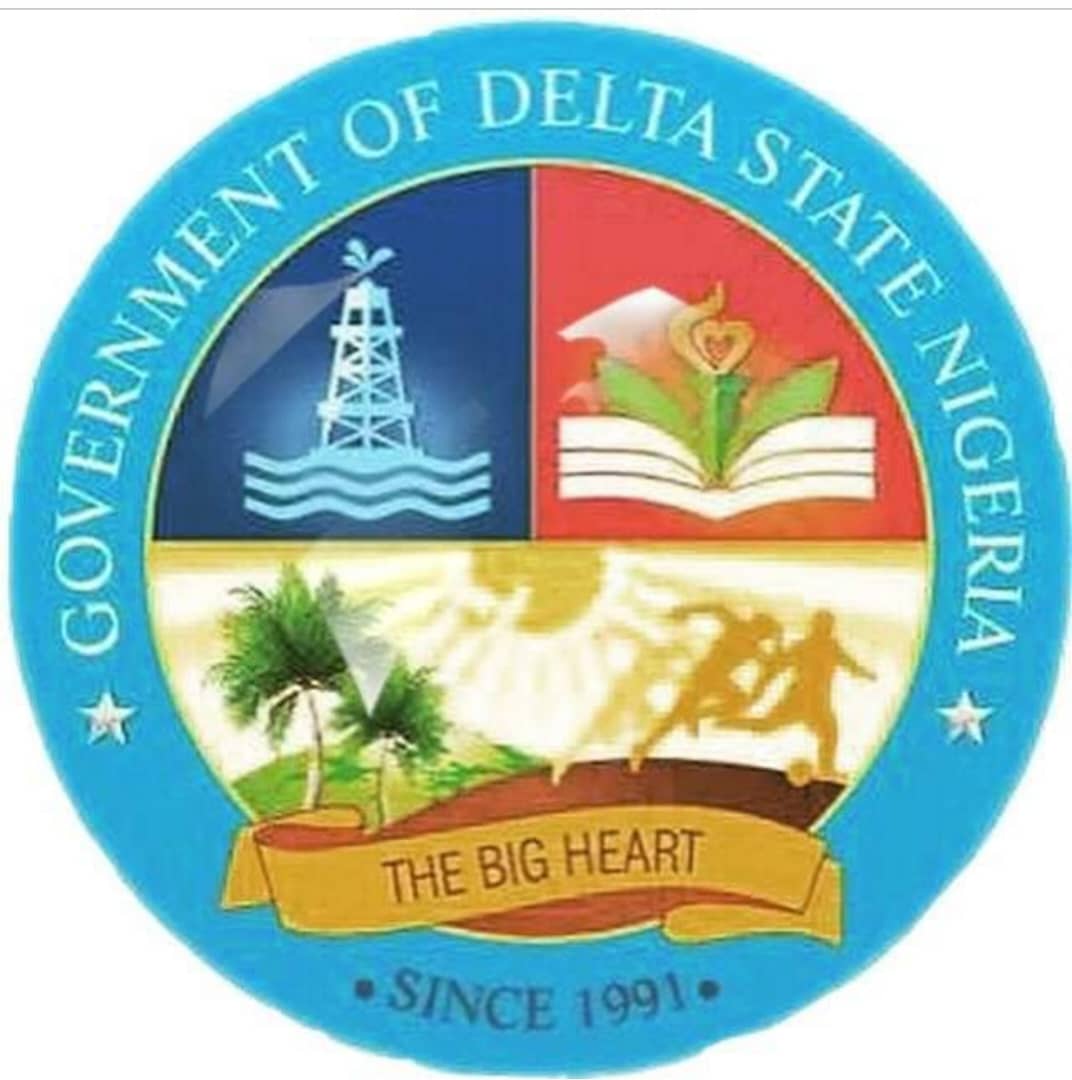Feature/OPED
Deconstructing Malice Campaign Accusation Preferred Against Okowa
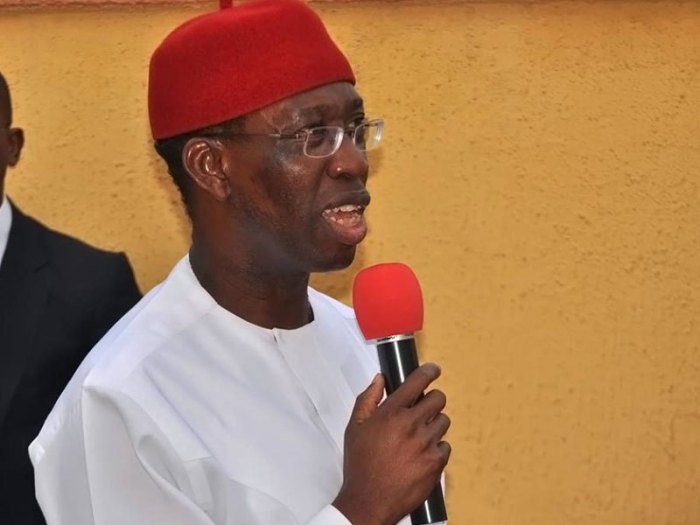
By Jerome-Mario Chijioke Utomi
In the words of Jimmy Carter, former President of the United States of America (USA), the experience of democracy is like the experience of life itself—always changing, infinite in its variety, sometimes turbulent and all the more valuable for having been tested in adversity.
In like manner, evidence abounds, if only sought for, that in every democratic setting, there are clear thinkers, muddled thinkers and people that fall in between. Clear thinkers are the ones that can cull everything down into the right points-are very hard to find. But if you get yourself a team of clear thinkers, the possibilities are endless. These are men who see tomorrow, trailblazers and high-level executives, but most often misunderstood by some fellow countrymen still stuck in the old normal of yesterday.
Ifeanyi Okowa, the incumbent Governor of Delta State, without any shadow of the doubt, fittingly falls into the bracket of a clear thinker. But like the case of every clear thinker, he is currently misunderstood by some fellow countrymen still stuck in the old normal of yesterday.
A typical instance to support this assertion is the recent drama and accusations in the ruling party in Delta State, the Peoples Democratic Party (PDP) by some councillors of the party from Delta Central Senatorial District that he is trying to push them to vote for his choice in the forthcoming governorship primary to choose the party’s flag bearer.
According to the post, the Governor is using the instruments of government and instructed them to support his supposed preferred candidate, the Speaker of the Delta State House of Assembly, Sheriff Oborevworio.
On the first thought, the above narrative seems like a reality. It looks alluring to believe particularly as the nation braces up for the general elections; a period where like war, all is considered fair; where and when political players welcome every opportunity to continually dig the mud in search of political gold.
At this level, there is no single cause of conflict. Rather, conflict becomes context-specific, multi-causal and multidimensional and can result from a combination of the following factors which include but are not limited to the issues of mutual distrust, suspicion, prejudice and name-calling.
In Delta State, such development/occurrence is exacerbated by the feudalistic and oligarch nature of a power bloc/section of the state and collaborated by this power-hungry gladiators’ incapacity, sincerity and lack of trustworthiness to negotiate and resolve contentious issues without resorting to the present political gimmicks.
But beyond this peripheral prism, there exists something deeply troubling with this latest slant, scant and calculated accusation paddled against the person of the Governor.
Aside from wilful refusal to entertain alternative opinions through a number of credible sources of information openly and freely available in the public domain that might help produce a deeper understanding of the governor’s position on the matter, and their choice to focus on convenient untruth presented with a superficial, emotional and manipulative approach that is not worthy of our democracy, making the current development in the state a reality to worry about is that these accusers exploited a mixture of fear and propaganda among gullible Deltans and postured themselves as bold defenders of our state while weakening the foundation of our unity.
But for reasons that come in double folds, this piece is not surprised.
First and very fundamental, it is globally believed that when human beings develop a higher order of thinking, they gain the ability to conceptualize threats instead of just perceiving them. But they also gained the ability to conceptualize imaginary threats. And when groups of people are persuaded to conceptualize these imaginary threats, they activate the fear response as powerfully as would real threats.
This is the foundation of the present challenge.
For yet-to-be-identified reason(s), the Governor’s accusers appear to have activated a fear response as powerful as would real threats across the lengths of the state.
Qualifying the present attack as a crisis is an awareness that it is coming at a time when Okowa as a creative leader daily professes that the PDP, of which he is the leader in the state, has a policy of rotating the governorship among the three Senatorial Districts of the state for the purposes of equity and inclusiveness through equitable distribution of appointments and projects without influencing/interference with the process that throws up such beneficiaries.
In the same light, if there is any other reason as to why Governor Okowa will not indulge in the shenanigan as alleged, it is the fact that at no time in the history of our beloved Delta State have we been as united as we are today or witnessed such magnitude of trust of ourselves and of our state under the leadership of Okowa.
As we know, the state, to use the Governor’s words, is a microcosm of Nigeria because she is peopled by different ethnic nationalities. She has had inter-ethnic conflicts/clashes, fatal boundary disputes, especially over oil-bearing land, and political tensions. She has had high unemployment and poverty rates. Luckily, successive governments of the state have tackled the issues in different ways, and I am building on the foundation they laid.
Looking at the above words coming from the Governor himself, it becomes obvious that there is no way he will join in destroying a house he assisted to build or take actions that will be inimical to the sustained peace in the state.
Instead of the present attack, name-calling and campaign of calumny against the governor, this piece holds the opinion that what the Governor needs is support and not vilification.
There are so many reasons that informed this decision; it ranges from Governor’s disposition to conflict resolution and peacebuilding in the state to his superlative performance in infrastructural development of the state particularly in the areas of road networks.
To underscore this position, let’s listen to Okowa as he captured it during a recent function in Lagos; We have erected structures for conflict resolution and peacebuilding. They include the Office of the Special Adviser on Conflict Resolution and Peace Building and the Delta State Advisory and Peace Building Council with a membership of 42 (forty-two) respected men and women in various fields drawn from every local government area of the State. These structures have proactively prevented crises by promptly and effectively resolving disputes.
Continuing, he added that; We also have a deliberate policy to tackle youth unemployment through skills training and entrepreneurship development programmes. I believe that the way out of the unemployment quagmire is to equip the youth with the technical know-how, vocational skills, values and resources to become self-employed, as distinct from one-off empowerment.
This is what my administration has done by instituting various skills training and entrepreneurship development programmes, which include: Skills Training and Entrepreneurship Programme (STEP); Youth Agricultural Entrepreneurs Programme (YAGEP); Graduate Employment Enhancement Programme (GEEP); Rural Youth Skills Acquisition Programme (RYSA); Girls Entrepreneurship Skills Training (GEST); and Women Entrepreneurship Skills Acquisition Programme (WESAP).
These programmes are trainee-centred and service-oriented. The sectors and activities covered include agriculture, agricultural value chain services, vocational skills-based microenterprises and cottage enterprises. Furthermore, the training and mentoring processes aim beyond raising entrepreneurs to produce leaders and managers that have high levels of personal responsibility and effectiveness. I am pleased to let you know that after six years of faithful implementation of these programmes, we have trained and given business support packages to several thousands of youths.
Following the success of these interventions and other efforts in promoting technical education, Delta State was ranked the Best State in Human Capital Development in the 2017 States Peer Review by the National Competitiveness Council of Nigeria. Also in 2020, Delta was adjudged to be the Second Least Poor State, coming only after Lagos, Nigeria’s business hub, according to the Nigerian Bureau of Statistics (NBS).
The above efforts can only come from a Governor that is willing to save and serve his people.
On a final note, as the commentary continues, there are two striking attributes that stand Okowa out; first, well-meaning Nigerians are in agreement that he is a national leader that is well respected by all.
Secondly, he is among the few public office holders in the country that have played politics using global rules and dictates.
He is in the opinion of this piece exposed to the present attack not because there is an established link with the said allegation, but primarily because, the accusers feel that he occupies a public office and therefore, lacks the right to private living.
Jerome-Mario Utomi is the Programme Coordinator (Media and Public Policy), Social and Economic Justice Advocacy (SEJA), Lagos. He can be reached via je*********@***oo.com/08032725374
Feature/OPED
The Hidden Workforce of the 2026 Access Bank Lagos City Marathon

When the final runner crossed the finish line at the 11th edition of the Access Bank Lagos City Marathon (ABLCM), the applause began to fade. But for hundreds of workers across Lagos, the real work was just beginning.
Major highways had been closed to facilitate the event. Tens of thousands of runners moved through the city in a coordinated surge of athletic endurance. Thousands of bottles of water and energy drinks were distributed, alongside sachets containing essential medical supplies and medication. The race route itself was meticulously prepared, lined with banners, barricades, medical tents and precision timing systems that ensured safety, organisation and accurate performance tracking from start to finish.
What followed was the part that a few cameras lingered on, yet it remains one of the clearest indicators of institutional progress.
Within minutes of the race conclusion, coordinated sanitation teams fanned out across the marathon corridor. Their work went beyond sweeping. Waste was systematically sorted. Plastic bottles were separated from general refuse. Sachets were gathered in bulk. Collection trucks moved along predefined routes, ensuring rapid evacuation of waste. Temporary race infrastructure was dismantled with quiet precision.
In a megacity like Lagos, speed is a necessity. Urban momentum cannot pause for long. The ability to restore order quickly after an event of this magnitude reflects operational discipline across interconnected systems, municipal authorities, environmental agencies, private waste management partners and event coordinators.
Globally, large-scale sporting events are no longer evaluated solely by participation numbers or prize purses. Sustainability has emerged as a defining metric. Environmental responsiveness is now a core measure of credibility. Cities seeking tourism growth, foreign investment and international partnerships must demonstrate that scale does not compromise responsibility. The 2026 marathon provided a compelling case study in this evolution.
The clean-up operation itself generated meaningful economic activity. Temporary employment opportunities emerged for sanitation workers and logistics personnel. Recycling partners engaged in material recovery, reinforcing circular economy value chains. What was once viewed as routine waste disposal has evolved into a structured ecosystem of environmental services, a sector of increasing importance in modern urban economies.
This level of sustainability was the result of deliberate planning. Effective post-event recovery requires route mapping, waste volume projections, coordination between sponsors such as Access Bank Plc and municipal bodies, contingency planning for congestion points and clear communication protocols.
Each edition of the marathon has built on lessons from the last. International participation has expanded. Accreditation standards have strengthened. Media visibility has grown. Most importantly, environmental management has become embedded in the marathon’s operational framework rather than treated as an afterthought.
Progress rarely arrives in dramatic leaps, it advances through incremental improvements, refined systems and institutional learning. Just as elite runners close performance gaps through disciplined training, cities strengthen their global standing through consistent operational excellence.
The 2026 marathon, therefore, tells a story that extends far beyond athletic achievement. It is a story of coordination, sustainability as strategy rather than slogan, and the often unseen workforce, sanitation workers, planners, volunteers, security officials and environmental partners, whose discipline sustains the spectacle.
Because in the end, global cities are judged by how well they host and how responsibly they restore. On the marathon day in Lagos, it was the runners who demonstrated endurance and the systems, and the people behind them, who ensured that when the cheering stopped, the city kept moving.
Feature/OPED
N328.5bn Billing: How Political Patronage Built Lagos’ Agbero Shadow Tax Empire

By Blaise Udunze
Lagos prides itself as Africa’s commercial nerve centre. It markets innovation, fintech unicorns, rail lines, blue-water ferries, and billion-dollar real estate. Though with the glittering skyline and megacity ambition lies a parallel state, a shadow taxation regime run not from Alausa, but from motor parks, bus stops, and highway shoulders. They are called “agberos.” And for decades, they have functioned as Lagos’ unofficial tax masters.
What began as loosely organised transport unionism mutated into a pervasive and often violent system of extortion. Today, tens of thousands of commercial buses, over 75,000 danfos according to estimates by the Lagos Metropolitan Area Transport Authority, ply Lagos roads daily. Each bus is a moving ATM. Each stop is a tollgate. Each route is a revenue corridor.
Looking at the daily estimate from their operations, at N7,000 to N12,000 per bus per day, conservative calculations show that between N525 million and N900 million is extracted daily from drivers. Annually, that balloons toward N192 billion to N328.5 billion or more, money collected in cash, unreceipted, unaudited, unaccounted for. This illicit taxation on an industrial scale did not emerge in a vacuum.
The reality today is that to understand the scale of the problem, one must confront its political history. It was during the administration of Bola Ahmed Tinubu as Lagos State governor from 1999 to 2007, who is now the President, that the entrenchment of transport union dominance and motor park patronage deepened.
Under his political machine, transport unions became not just labour associations but mobilisation structures, formidable grassroots networks capable of crowd control, voter turnout engineering, and territorial enforcement. In exchange for political loyalty, street influence translated into operational latitude.
Motor parks became power bases. “Area boys” became enforcers. Union leadership became politically connected. What should have been regulated associations morphed into revenue-generating franchises with muscle.
The system outlived his tenure. It institutionalised itself. It professionalised. It is embedded in Lagos’ political economy.
And today, it thrives in broad daylight. Endeavour to visit Ajah under bridge, Ikeja under bridge, or Mile-2 along Ojo at 6:00 a.m. Watch drivers clutching crumpled naira notes. Observe men in green trousers and caps marked NURTW weaving between buses, collecting what drivers call òwò àrò, or evening as òwò iròlè money taken from passengers.
A korope driver shouts, “Berger straight!” His bus fills. The engines rumble. But before he moves, he must pay. If he refuses? The side mirror may disappear. The windscreen may crack. The conductor may be assaulted. The vehicle may be blocked with planks, and if they resist, the conductor or driver may be beaten. Movement becomes impossible. It is not optional.
This is common across Lagos, especially amongst drivers in Oshodi, Obalende, Ojodu Berger, Mile 2, Iyana Iba, and Badagry, and describes a three-layered structure ranging from street collectors, area coordinators, and union executives at each location. Daily targets flow upward. Commissions remain below.
One conductor disclosed he budgets at N8,500 daily for louts alone, excluding fuel, delivery to vehicle owners, and official tickets. Another driver says he parts with nearly N15,000 in total daily levies across routes.
Of N40,000 collected on trips, barely N22,000 survives before fuel. Sometimes, drivers go home with N3,500. Working like elephants. Eating like ants. The impact extends far beyond drivers.
Every naira extorted is transferred to commuters. An N700 fare becomes N1,500. A N400 corridor becomes N1,200 in traffic, and this is maintained even after fuel prices fall; fares rarely decline. The hidden levy remains.
Retail traders reduce stock purchases because transport eats profits. Civil servants watch salaries stagnate while commuting costs climb. Market women complain that surviving Lagos costs more than living in it.
This is not just a transport disorder. It is inflation engineered by coercion. Economists call it financial leakage, money extracted from the productive economy that never enters the fiscal system. Billions circulate annually without appearing in government ledgers. No roads are built from it. No hospitals funded. No schools renovated.
It is taxation without development. Small and Medium Enterprises form nearly half of Nigeria’s GDP and employ the majority of its workforce. In Lagos, they are under assault from informal levies layered on top of official taxes. Goods delivered by bus carry hidden transport premiums. Commuting staff face higher daily costs. Inflation ripples through supply chains.
The strike by commercial drivers in 2022 exposed the depth of resentment. Under the Joint Drivers’ Welfare Association of Nigeria (JDWAN), drivers protested “unfettered and violent extortion.” Lagos stood still. Commuters trekked. Appointments were missed. Businesses stalled.
Drivers alleged that half of their daily income vanished into motor park collections.
Some who protested were attacked. Yet the collections continued.
Drivers insist daily collections at single corridors can exceed N5 million. Park chairmen allegedly control enormous cash flows. Uniformed collectors operate with visible confidence.
Meanwhile, the Lagos State Government denies sanctioning any roadside extortion. Officials describe the tax system as institutionalised and structured. They promise reforms through Bus Rapid Transit, rail expansion and corridor standardisation. Yet the shadow toll persists.
Contrast this with Enugu State, where Governor Peter Mbah introduced a Unified e-Ticket Scheme mandating digital payments directly into the state treasury. Paper tickets were banned. Cash collections outlawed. Revenue flows are traceable. Harassment criminalised.
Drivers in Lagos say openly that they should be given a single N5,000 daily ticket paid directly to the government, and end the chaos. Instead, they face multiple actors, agberos, task forces, and traffic officials, each demanding settlement.
The difference is in governance philosophy. One digitises and centralises revenue to eliminate leakages.
The other tolerates fragmentation that breeds shadow collectors. The uncomfortable truth is that the agbero structure is politically sensitive. Transport unions are not just labour bodies; they are political instruments. They mobilise during elections. They maintain territorial presence. They command street loyalty. In return, they are allegedly tolerated, protected, or absorbed into broader political structures as they turn into war instruments and a battle axe in the hands of the government of the day. The underlying reality is that the agbero who are the street-level power structures and the government authorities benefit from each other; the line between unofficial influence and official governance becomes unclear, making reform politically sensitive.
The issue is not merely about street disorder; it is about economic governance. Illicit taxation distorts pricing mechanisms, reduces productivity, discourages the formalisation of businesses, and weakens public trust. If citizens are compelled to pay both official taxes and unofficial levies, compliance morale declines. Why comply with statutory taxation when parallel systems operate unchecked?
Dismantling them is not merely administrative; it is political. Perhaps unbeknownst to the people, the cost of inaction is immense. Lagos aspires to be a 21st-century smart megacity under such an atmosphere. But investors notice informal roadblocks. Businesses factor in unpredictability. Commuters absorb unofficial taxes daily. Across Lagos roads, the script repeats “òwò mi dà,” meaning, give me my money.
Passengers plead with collectors to reduce levies so they can proceed. Conductors argue over dues before departure. Citizens feel hostage to a system they neither elected nor authorised.
Taxation, constitutionally, belongs to the state. It must be legislated, receipted, audited and deployed for the public good.
Agbero taxation is none of these. It is coercive. It is not transparent. It is extractive. Lagos has launched rail lines and BRT corridors. The Lagos Metropolitan Area Transport Authority continues transport reforms. Officials promise that bus reform initiatives will eliminate unregistered operators. But reform cannot be selective. You cannot modernise rail while medieval tolling persists on roads. You cannot preach digital governance while cash collectors flourish at bus stops. You cannot aspire to global city status while informal muscle dictates movement.
The solution is not episodic arrests. It is a structural overhaul: mandatory digital ticketing across all parks; a single harmonised levy payable electronically; an independent audit of union revenue; protection for drivers who resist illegal collections; and political decoupling of unions from patronage networks.
The agbero empire is not merely about bus fares. It is about how patronage systems, once empowered, metastasise into parallel authorities. What may have begun as strategic alliance-building two decades ago has matured into a shadow fiscal regime embedded in daily life.
The challenge is that Lagosians are left with no choice as they now pay twice, once to the government, once to the streets. And unlike official taxes, shadow taxes leave no developmental footprint. No bridge bears their name. No hospital wing testifies to their billions. No classroom is built from their collections. Only inflated fares. Broken windscreens. Frustrated commuters. And drivers who sweat under the sun, calculating how much will remain after everyone has taken their cut.
The agbero question is ultimately a governance question. Is Lagos governed by law, or by tolerated coercion? Is taxation a constitutional function, or a roadside negotiation? Is political convenience worth permanent economic distortion? What is absolutely known is that the structure has a political backing and what politics created, politics can dismantle.
Unless meaningful reform takes place, Lagos will continue to remain a megacity with a shadow treasury, where movement begins not with ignition, but with payment to men who answer to no ledger without any tangible returns. This is to say that every danfo that moves carries not just passengers, but the weight of a system that taxes without law, collects without accountability and punishes the very people who keep the city alive.
Blaise, a journalist and PR professional, writes from Lagos and can be reached via: bl***********@***il.com
Feature/OPED
How to Nurture Your Faith During Ramadan

Many Muslims grow up learning how to balance life carefully. Faith, work, and responsibility all sit on the same scale, and during Ramadan, that balance becomes even more delicate. Days start earlier than usual, nights stretch longer, and energy is spent with intention.
Over time, this rhythm shapes more than schedules; it quietly shapes how Ramadan is experienced.
Between getting ready for work, navigating long days, preparing meals for iftar, observing prayers, and trying to rest, moments for reflection are often pushed to the side. When there’s finally time to pause, many people assume meaningful Islamic content requires complete silence, full attention, and emotional space, things that can feel scarce during the month.
They scroll past channels they believe may be too formal, or not suited to their everyday routine. They stick to what feels familiar, even if it doesn’t quite align with the spirit of the season and without realising it, they limit themselves.
What many don’t know is that content designed for moments like these already exists on GOtv. The Islam Channel offers programming that understands Ramadan as it is truly lived.
On the Islam Channel, viewers can find thoughtful discussions that explore faith in a way that feels relevant to modern life, educational programmes that break down Islamic teachings clearly and calmly, and inspiring shows that encourage reflection without feeling overwhelming. There are conversations that can play softly in the background while you’re cooking, reminders you can catch while getting dressed for work, and programmes that help you unwind gently after a long day of fasting.
What sets the channel apart is how it personalises Islamic themes, making them accessible not just during prayer time, but throughout the day. Its content is created to inform, reflect, and inspire, whether you’re actively watching or simply listening as life continues around you. And while it speaks directly to Muslim audiences, it also remains open and welcoming to non-Muslims interested in understanding Islamic values, culture, and everyday perspectives.
During Ramadan, television often becomes part of the atmosphere rather than the focus. And having access to content that aligns with the season can quietly enrich those in-between moments, the ones that often matter most.
This Ramadan, the Islam Channel is available on GOtv Ch 111, ready to meet you wherever you are in your day.
And here’s the exciting part: with GOtv’s We Got You offer, you can enjoy your current package and get access to the next package at no extra cost. There’s never been a better time to hop on and get more shows, more suspense, and more entertainment, all for the same price!
To upgrade, subscribe, or reconnect, download the MyGOtv App or dial *288#. For watching on the go, download the GOtv Stream App and enjoy your favourites anytime, anywhere.
-

 Feature/OPED6 years ago
Feature/OPED6 years agoDavos was Different this year
-
Travel/Tourism10 years ago
Lagos Seals Western Lodge Hotel In Ikorodu
-

 Showbiz3 years ago
Showbiz3 years agoEstranged Lover Releases Videos of Empress Njamah Bathing
-

 Banking8 years ago
Banking8 years agoSort Codes of GTBank Branches in Nigeria
-

 Economy3 years ago
Economy3 years agoSubsidy Removal: CNG at N130 Per Litre Cheaper Than Petrol—IPMAN
-

 Banking3 years ago
Banking3 years agoSort Codes of UBA Branches in Nigeria
-

 Banking3 years ago
Banking3 years agoFirst Bank Announces Planned Downtime
-

 Sports3 years ago
Sports3 years agoHighest Paid Nigerian Footballer – How Much Do Nigerian Footballers Earn




